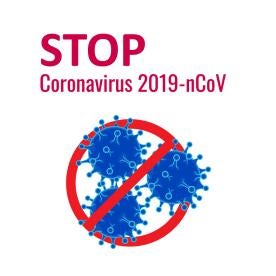On March 30, 2020, the Secretary of Health and Human Services issued blanket waivers of the Physician Self-Referral Law (“Stark Law”). As explained below, those waivers temporarily allow COVID-19 related payments and referrals between designated health service (“DHS”) entities and physicians as long as the payments and referrals fall within CMS’ stated conduct. The waivers are retroactive to March 1, 2020, apply nationwide, and will remain in effect for the duration of the public health emergency.
Importantly, the waivers do not suspend the application of the Stark Law. Rather, they temporarily exempt from sanctions, certain arrangements that are solely related to COVID-19 Purposes.
What Are COVID-19 Purposes?
-
The diagnosis or medically necessary treatment of COVID-19 for any patient or individual, whether or not the patient or individual is diagnosed with a confirmed case of COVID-19;
-
Securing the services of physicians and other health care practitioners and professionals to furnish medically necessary patient care services, including services not related to the diagnosis and treatment of COVID-19, in response to the COVID-19 outbreak in the United States;
-
Ensuring the ability of health care providers to address patient and community needs due to the COVID-19 outbreak in the United States;
-
Expanding the capacity of health care providers to address patient and community needs due to the COVID-19 outbreak in the United States;
-
Shifting the diagnosis and care of patients to appropriate alternative settings due to the COVID-19 outbreak in the United States; or
-
Addressing medical practice or business interruption due to the COVID-19 outbreak in the United States in order to maintain the availability of medical care and related services for patients and the community.
What Remuneration and Referrals Are Covered by the Blanket Waivers?
The blanket waivers exempt eighteen (18) types of remuneration and referrals, including those for:
1. Remuneration:
-
Personal Services: Remuneration from an entity to a physician that is above or below the fair market value (“FMV”) for services personally performed by the physician to the entity.
-
Office Space: Rental charges paid by an entity to a physician that are below FMV for the entity’s lease of office space. Rental charges paid by a physician to an entity that are below FMV for the physician’s lease of office space from the entity.
-
Equipment: Rental charges paid by an entity to a physician that are below FMV for the entity’s lease of equipment. Rental charges paid by a physician to an entity that are below FMV for the physician’s lease of equipment from the entity.
-
Items or Services or Use of Premises: Remuneration from an entity to a physician (or an immediate family member of a physician) that is below fair market value for items or services purchased by the entity from the physician. Remuneration from a physician to an entity that is below FMV for the use of the entity’s premises or for items or services purchased by the physician from the entity.
-
Medical Staff Incidental Benefits: Remuneration from a hospital to a physician in the form of medical staff incidental benefits that exceeds $36 with respect to each occurrence, as adjusted for inflation.
-
Non-Monetary Compensation: Remuneration from an entity to a physician (or the immediate family member of a physician) in the form of nonmonetary compensation that exceeds an aggregate of $423 per calendar year, as adjusted for inflation.
-
Loans to Physician: Remuneration from an entity to a physician (or the immediate family member of a physician) resulting from a loan to the physician (or the immediate family member of the physician): (1) with an interest rate below fair market value; or (2) on terms that are unavailable from a lender that is not a recipient of the physician’s referrals or business generated by the physician.
-
Loans to Entity: Remuneration from a physician (or the immediate family member of a physician) to an entity resulting from a loan to the entity: (1) with an interest rate below fair market value; or (2) on terms that are unavailable from a lender that is not in a position to generate business for the physician (or the immediate family member of the physician).
2. Referrals:
-
Referrals by Physician Owner of an ASC that Temporarily Converts to a Hospital: Referrals by a physician owner of a hospital that converted from a physician owned ambulatory surgical center to a hospital on or after March 1, 2020 to treat overflow patients requiring a hospital setting, provided that the hospital enrolled in Medicare as a hospital during the period of the public health emergency and the hospital meets the Medicare conditions of participation and other requirements not waived by CMS during the period of the PHE, and the hospital’s Medicare enrollment is not inconsistent with the Emergency Preparedness or Pandemic Plan of the State in which it is located.
-
Referral By a Physician to a HHA: The referral by a physician of a Medicare beneficiary for the provision of DHS to a home health agency: (1) that does not qualify as a rural provider; and (2) in which the physician has an ownership or investment interest.
-
In-Office Ancillary Services: The referral by a physician in a group practice for medically necessary DHS furnished by the group practice in a location that does not qualify as a “same building” or “centralized building.”
-
In-Office Ancillary Services Provided at Other Locations: The referral by a physician in a group practice for medically necessary DHS furnished by the group practice to a patient in his or her private home, an assisted living facility, or independent living facility where the referring physician’s principal medical practice does not consist of treating patients in their private homes.
-
Immediate Family Members: The referral by a physician to an entity with which the physician’s immediate family member has a financial relationship if the patient who is referred resides in a rural area.
-
Writing and Signature Requirements: Referrals by a physician to an entity with whom the physician has a compensation arrangement that does not satisfy the writing or signature requirement(s) of an applicable exception but satisfies each other requirement of the applicable exception, unless such requirement is waived under one or more of the blanket waivers.
-
Physician Ownership and Investment in Hospitals: The referral by a physician owner of a hospital that temporarily expands its facility capacity above the number of operating rooms, procedure rooms, and beds for which the hospital was licensed without prior application and approval of the expansion of facility capacity as required under section 1877(i)(1)(B) and (i)(3) of the Act and 42 CFR 411.362(b)(2) and (c).
Relationship to the Anti-Kickback Statute (“AKS”)
Some financial relationships that implicate the physician self-referral law may also implicate and violate the federal anti-kickback statute. Under Section 1135 of the Social Security Act, the Secretary has the statutory authority to waive sanctions under the Stark Law. Although Section 1135 of the Act does not specifically authorize the waiver of sanctions under the federal anti-kickback statute during a public health emergency, the Department of HHS OIG may exercise enforcement discretion not to impose sanctions under the AKS for certain remuneration related to COVID-19 covered by the blanket waivers. However, in an April 3, 2020 policy statement, the OIG agreed not to impose administrative sanctions under the AKS with respect to conduct covered in the blanket waivers.
Good Faith Standard
Notably, the blanket waivers of the Stark Law impose a good faith standard. This means that CMS and the OIG will examine the application of the waivers to each arrangement to ensure that parties are not using them in an attempt to conceal or circumvent otherwise fraudulent conduct. However, there may be uncertainty about the meaning of good faith and how the government will apply the standard.
Although the blanket waivers do not require the submission of specific documentation or notice to the Secretary or CMS in advance of their use, the Secretary encourages parties to develop and maintain records reflecting the use of the waivers.
Practical Implications of the Waivers
-
During and after the pandemic, parties will want to maintain robust compliance efforts to document the waiver applicable to each arrangement and the valid COVID-19 purpose justifying the use of the waiver. All parties to an arrangement should maintain appropriate documentation to support the waiver requirements.
-
The waivers remain in effect only during the COVID-19 public health emergency. When the emergency ends, so do the temporary waivers. As a result, following the pandemic, parties must ensure that all of their relationships return to Stark Law compliance. The parties to any arrangement should routinely monitor the official status of the public health emergency to ensure that they are continuing to comply with the law.
-
There may be some uncertainty about the meaning of COVID-19 Purposes and the types of conduct that may be permissible.
-
Following the end of the pandemic, physicians should return anything of value provided by an entity for a COVID-19 purpose. This may include, but is not limited to free telehealth equipment, PPE, or other items provided at below FMV.
-
Parties may contact CMS directly with questions regarding the Stark Law waivers. CMS has indicated that all requests should be sent to 1877CallCenter@cms.hhs.gov and include the words “Request for 1877(g) Waiver” in the subject line. All requests should include the following minimum information:
-
Name and address of requesting entity
-
Name, phone number and email address of person designated to represent the entity
-
CCN or TIN
-
Nature of request
-




 i
i

